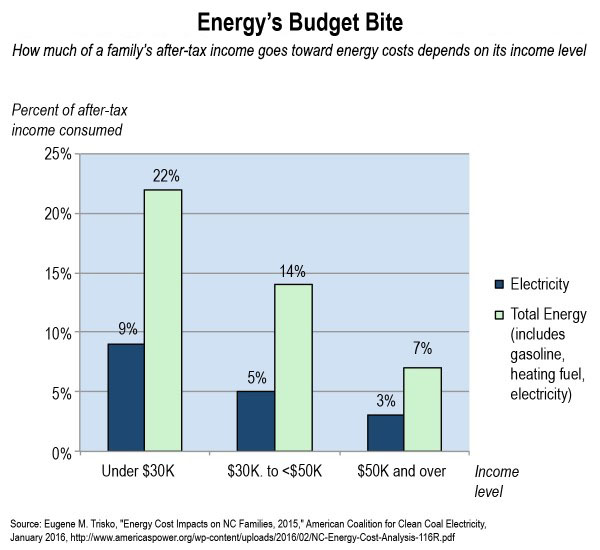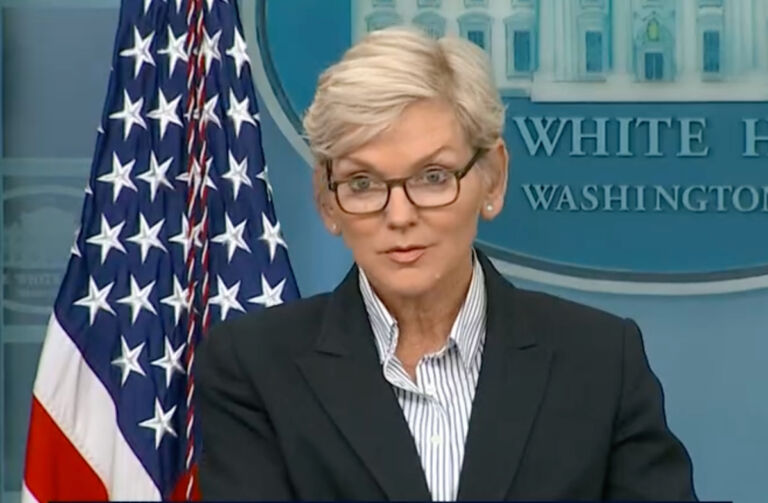The post-COVID economy is going to be stark. With over a million new unemployment claims in a matter of weeks, and perhaps two-thirds of restaurants closing for good, not to mention what will happen to all the other small businesses, people are going to be hurting. This is no time for expensive policy games that were barely tolerable even when times were good.
My new research brief looks at electricity policy in the coming months. Specifically, it talks about the very real problem of energy poverty. Here’s what that looked like in North Carolina when times were good:

As the brief explains, North Carolina state law already has a great standard to ward off energy poverty: least-cost, reliable electricity at the flip of a switch. But state policymakers have been playing games with that standard with expensive mandates and cronyism.
The brief points out that Gov. Roy Cooper already has an energy plan for North Carolina, but it’s designed for high-cost electricity and cronyism. It’s not an answer for the grim post-COVID landscape facing energy consumers.
And in fact, it’s not even needed on its own merits, as the brief makes clear:
In fact, North Carolina’s emissions from energy generation have fallen dramatically all century as utilities have changed over more to natural gas and nuclear generation. Solar’s impact is too small to register. …
Despite North Carolina’s two decades of falling energy emissions, Gov. Roy Cooper hasdeveloped a “Clean Energy Plan” in consultation with 164 “stakeholder” organizations.
Notably, out of all those groups, only 7 percent considered “affordability” a value to prioritize in developing this energy plan.
You’re in the wrong business if you don’t think affordability is a value to prioritize in energy policy. We’re talking about a basic human need.
Read more here for ways to uphold the state standard of least-cost, reliable electricity.


